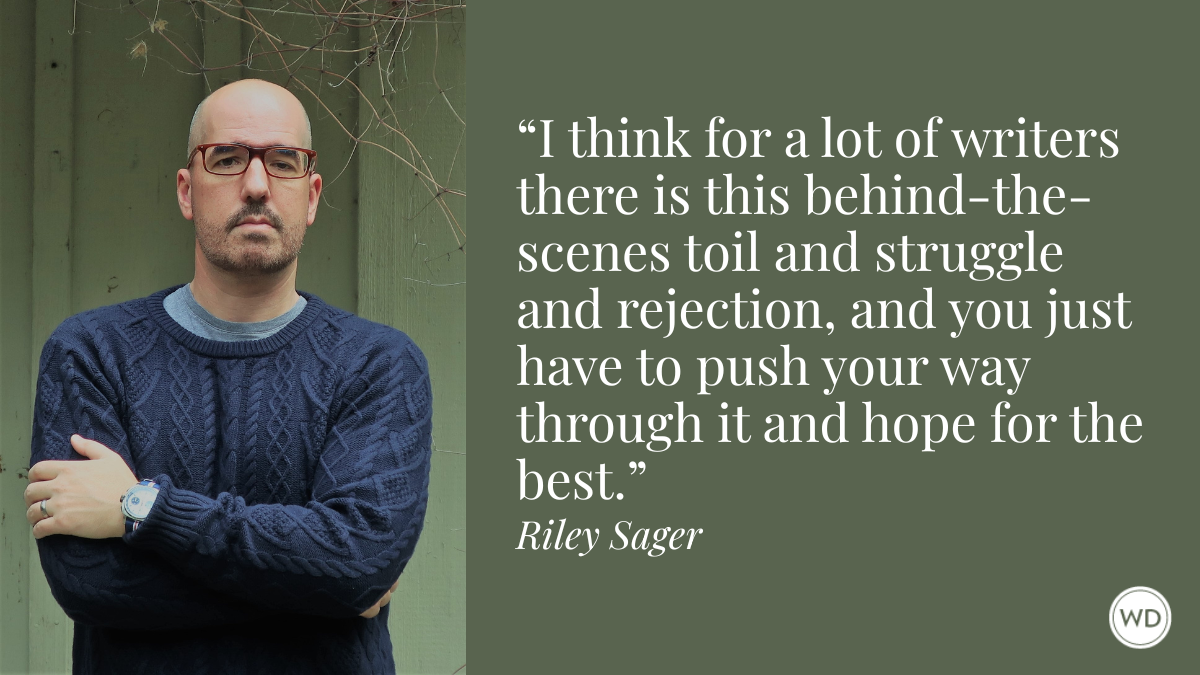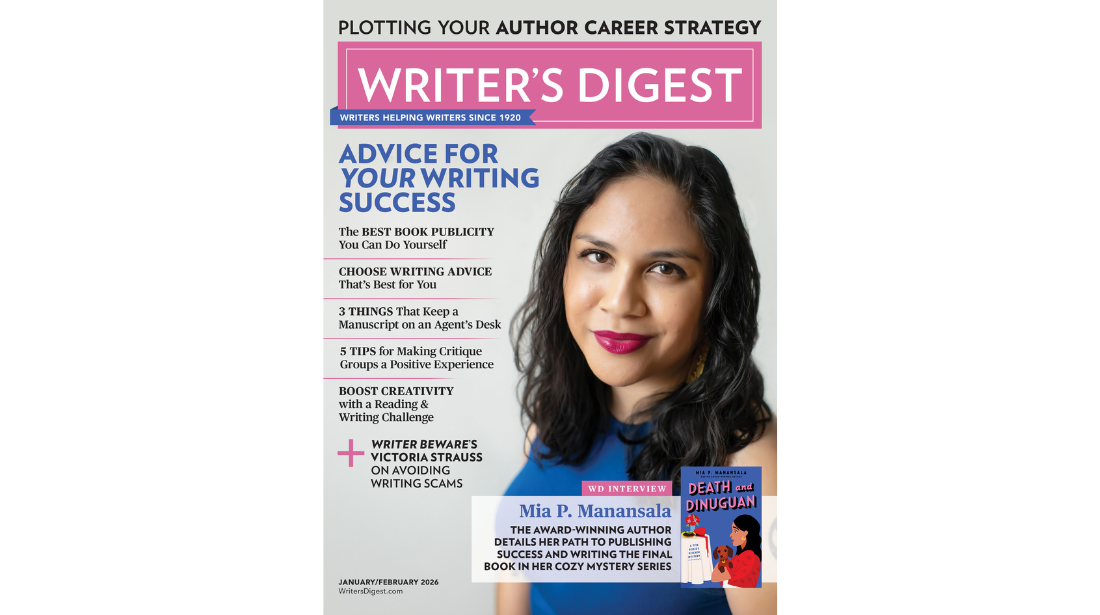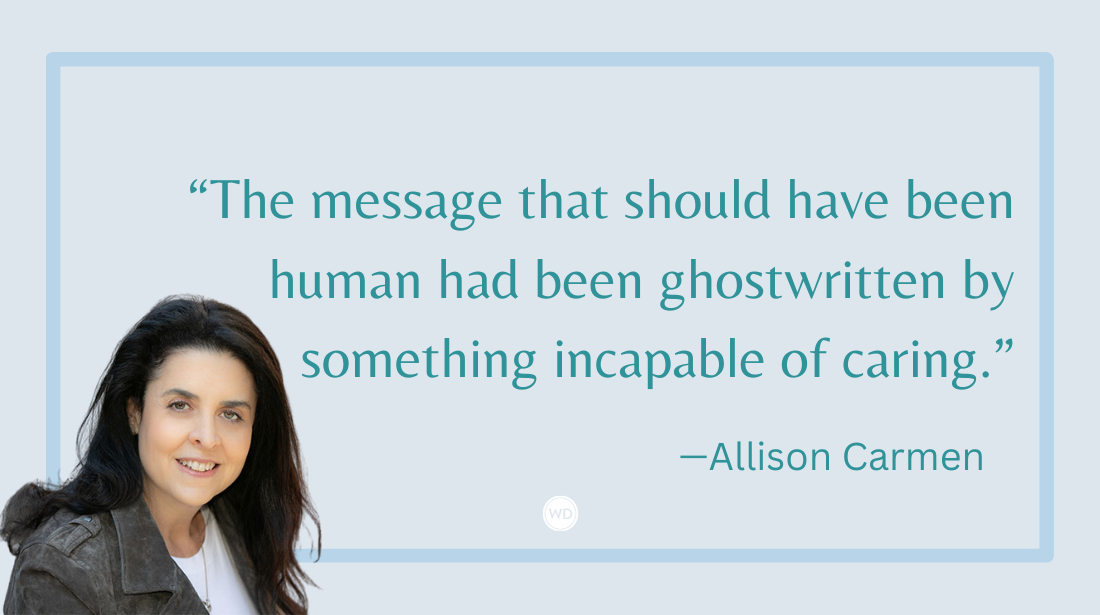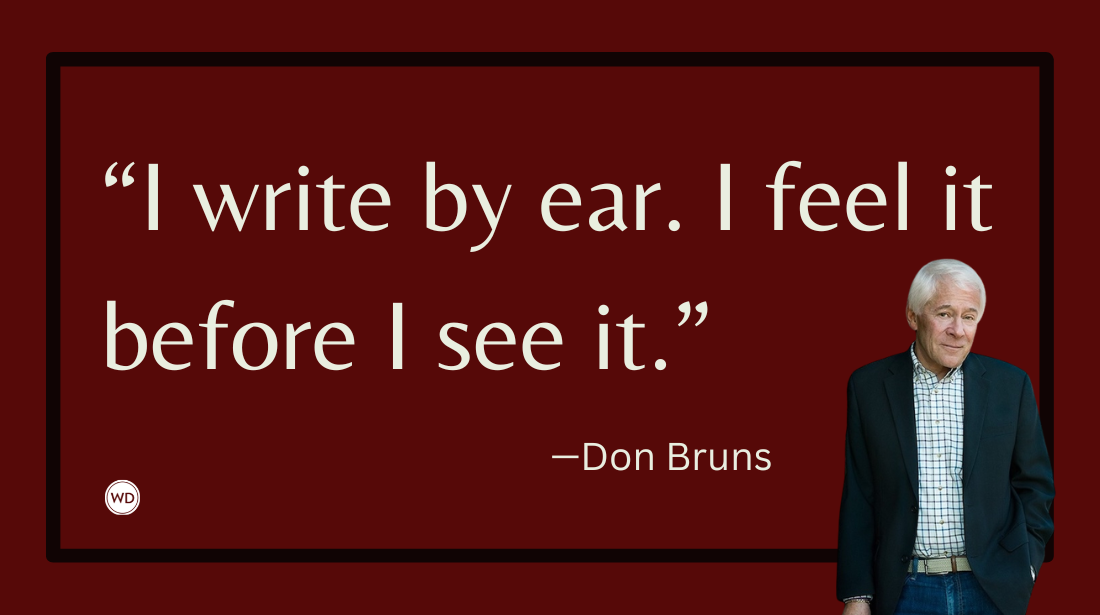How to Turn Traumatic Experiences Into Fuel For Your Writing
Writing can be inspired by many things. But for this author, a sudden bout with anemia really put things into perspective and motivated her to write.
People sometimes look askance when I say that experiencing a life-threatening illness was a good thing for me. The truth is that when you’re at the bottom of a deep, dark pit, there is nowhere to look but up. Contemplating how you might climb out—and what you will do when you get there—can be a positively transformative experience.
In the last few weeks of a long stay in Egypt in 2004, I began to feel unwell. Once back in California, I tried to tough it out, but a month of exhaustion, shortness of breath, and peculiar fuzzy-headed thinking finally forced me to seek medical help. After a stereotypical knee-jerk diagnosis of depression, the real cause for my malaise was identified as profound anemia. At serious risk for a stroke or heart attack, I was rushed to the nearest hospital for a massive blood transfusion.
*********************************************************************************************************************************
Guest post by Lydia Crichton, who has traveled all over the world in her twenty-plus year career as a marketing and fundraising expert for nonprofit organizations. A trip to Egypt in 2002 turned into a life-changing odyssey, which led her to discover a passion for telling stories that entertain as they explore complex and controversial social and political issues. She currently lives in California's Napa Valley––the inspiration for a second book in the Julia Grant Series, Grains of Truth, woven around the shambles of illegal immigration in the U.S. For more information, visit: www.lydiacrichton.com.
*********************************************************************************************************************************
The next eight months unfolded like a bad dream. Countless tests, often painful and all expensive, failed to reveal the cause of the anemia. After a hospital nurse confided that “some patients are treated here for symptoms for years without ever learning the cause,” a chance encounter led me to a naturopathic doctor. Through a quick and painless saliva diagnostic, she identified the problem: parasites. Within a week of administering a few inexpensive herbal remedies my blood count began to rise, as did my state of mind.
That’s how my “calling” as a writer began—certainly not with any formal education in the craft—but with a desire to record my ordeal (which became less important as time went by), and the need to speak of things I had seen and learned in Egypt. My “work” prior to that could mostly be found on billboards, in business letters and grant proposals (some of which might be classified as fiction). Basically, with a brain in recovery, I learned to write backwards, with absolutely no idea what I was doing; the only point of reference being thousands of books read over the years. It all started with a hand written journal of my travels. As a fairly private person, I hadn’t thought to make the memoir public. Oddly enough, although my logical left brain still languished, my creative right brain was asserting itself in unusual ways. When I sat down to sort out my thoughts on the computer, other ideas poked their heads out right away.
A story began to emerge, and it wanted to be a good one, the kind that I like to read: to entertain, to present something new and spark readers’ curiosity to want to learn more. My first novel, Grains of Truth, was born. Originally, the book consisted of three parts, with my own story setting the stage as Part I. Insecure about the daunting task of writing an entire book, I went on to throw in everything I could think of including the kitchen sink—along with the bathtub and several other appliances. Working in a fevered state, the first draft took six months. From the start, I believed that it could be a good story, but I also realized that it needed a lot of work. A lot of work. Things had to come out. A lot of things.
Over the next few years the manuscript went through relentless editing, revision and rewrites. I began to learn how to write: took classes and workshops, attended conferences and seminars. A screenwriter’s workshop in Los Angeles taught me how to improve the pace and tighten it up. I went through it, from beginning to end, over and over and over again; looking at structure, dialogue, pacing, character development, word usage…well, you get the idea. Each edit honed it down, bringing a heretofore unknown satisfaction. It was always easy to get lost in the story because this was my story—my people—my creation. Research fueled the plot and gave birth to new characters. Having them serve the story that I wanted to tell, making the pieces fit together in a seamless way, making the points I wanted to make while never losing sight of the vital importance of keeping the reader entertained and engaged: that was the challenge. I worked hard at having different characters present differing points of view on an infinitely complex subject: striving to set aside my personal points of view to objectively view the point. As in life, this can be a difficult thing to do.
Thankfully, the pistons in my brain now fire as well as they ever have. With the writing of the second and third books in the Julia Grant series, my process has become more organized, more efficient. Once settled on a provocative issue, the stories still unfold in an organic way, revealing themselves as they see fit, but I now log an outline as I go along. This helps to streamline edits and rewrites. And, even though the words come easier now, the one edit still nearest and dearest to my heart is that of examining them. Because a good story is, after all, made up of just the right words.
*********************************************************************************************************************************
Follow me on Twitter: @BrianKlems
Check out my humor book, Oh Boy, You're Having a Girl.
Sign up for my free weekly eNewsletter: WD Newsletter









